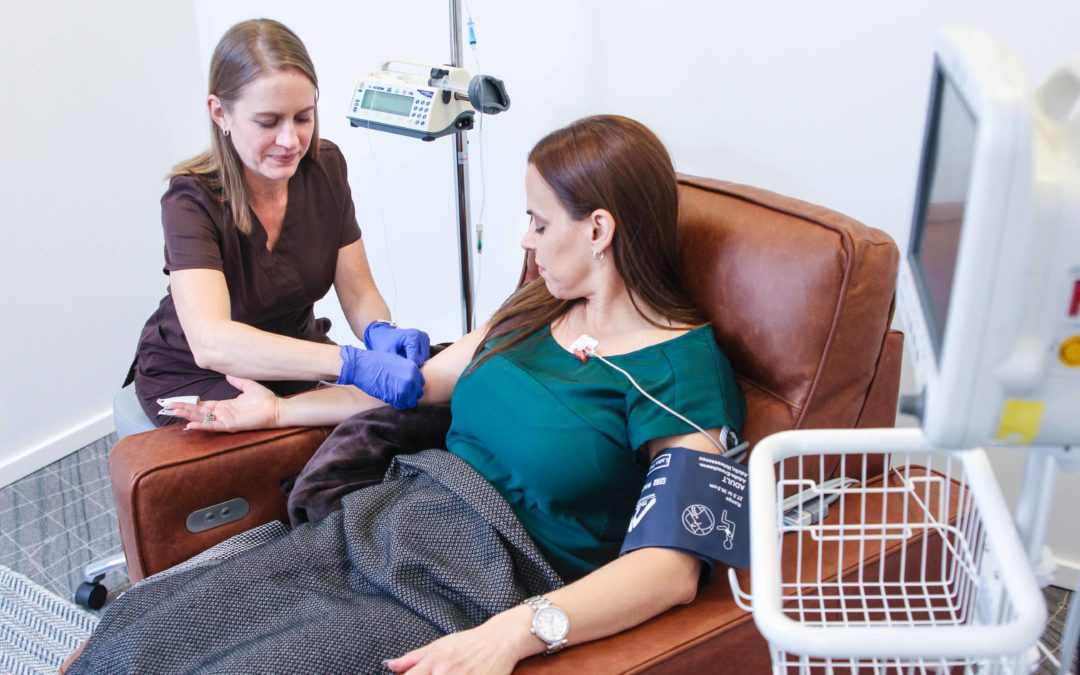ketamine providers near me
ketamine therapy cost
ketamine therapy cost
The cost of ketamine therapy can vary depending on several factors, including location, provider, and the type of treatment (e.g., intravenous (IV) ketamine infusions, nasal sprays, or at-home treatments). On average, the cost of ketamine therapy in the United States typically ranges from: ketamine therapy cost
- Intravenous (IV) Ketamine Infusions: $400 to $800 per session.
- Ketamine Nasal Spray (Spravato): Around $600 to $900 per session, which may require multiple sessions.
- At-Home Ketamine Treatments: Costs for at-home treatments or oral ketamine are generally lower but can still range from $200 to $500 per session. ketamine therapy costs
Typically, a complete treatment plan for conditions like depression, anxiety, or PTSD may require 6 to 12 sessions over the course of several weeks. Some clinics may offer packages or discounts for multiple sessions.
Insurance coverage can be limited, as many insurance providers do not cover ketamine therapy, although this is changing in some cases. It’s important to check with the provider or insurance company for specific details regarding coverage or reimbursement options.
If you’re looking for specific pricing in a certain area or treatment plan, it’s a good idea to directly contact local clinics offering ketamine therapy. ketamine therapy in virginia
Ketamine infusion therapy is a treatment that involves the administration of ketamine, a dissociative anesthetic, through an intravenous (IV) drip. It’s primarily used for individuals who have not responded to other treatments for certain mental health conditions, including depression, anxiety, PTSD, chronic pain, and some forms of addiction. Here’s an overview of how it works, its costs, and what to expect:
How Ketamine Infusion Therapy Works
- Administration: Ketamine is administered through an IV over the course of 40 minutes to an hour, depending on the specific protocol used by the clinic. The dosage and frequency of infusions are tailored to the individual’s needs.
- Mechanism of Action: Ketamine is believed to work by blocking NMDA receptors in the brain, which helps regulate neurotransmitters like glutamate. ketamine infusion therapy near me. This can lead to improvements in mood, pain levels, and cognitive function. The therapy may also promote neuroplasticity, or the brain’s ability to form new connections. ketamine therapy cost
- Indications: Ketamine is typically used for treatment-resistant conditions, such as:
- Depression (especially treatment-resistant depression)
- Anxiety and panic disorders
- Post-Traumatic Stress Disorder (PTSD)
- Chronic pain conditions like fibromyalgia or complex regional pain syndrome (CRPS)
- Obsessive-Compulsive Disorder (OCD)
- Bipolar disorder (for some patients)
- Effectiveness: Many patients experience rapid relief from symptoms, sometimes within hours of the first infusion. However, effects may vary, and not everyone responds to ketamine therapy.
Typical Ketamine Infusion Therapy Sessions
- Initial Sessions: A standard treatment protocol often begins with 6 infusions spaced over 2 to 3 weeks, although the number of sessions can vary depending on the condition being treated.
- Maintenance: After the initial phase, some patients may require maintenance infusions, which could be monthly or as needed, depending on how well the treatment works.
Side Effects
- Most side effects are temporary and mild, including:
- Dizziness or lightheadedness
- Mild dissociation or altered perception during the infusion
- Increased blood pressure (usually short-term)
- Nausea (can be managed with anti-nausea medication)
- Fatigue or sedation after the session
Cost of Ketamine Infusion Therapy
The cost of ketamine infusion therapy can vary based on location, clinic, and the number of sessions required. On average, the cost ranges from:
- $400 to $800 per infusion session.
- Some clinics may offer packages for multiple sessions, which could reduce the overall cost.
The initial treatment phase (6-12 sessions) can cost between $2,400 and $9,600, depending on the number of infusions required and the cost per session.
Insurance Coverage
Currently, ketamine therapy is often not covered by insurance, especially for mental health conditions, as it is considered an off-label treatment. However, some insurance providers may cover ketamine infusions for chronic pain or anesthesia-related uses. It’s essential to check with your insurance company for specific coverage details. ketamine therapy cost
What to Expect During a Session
- Consultation: Before starting treatment, you’ll have a consultation with a provider to assess your medical history, condition, and determine if ketamine therapy is appropriate for you.
- IV Infusion: The infusion takes place in a comfortable, quiet room. You’ll be hooked up to an IV, and the infusion typically lasts 40 to 60 minutes. Patients are usually monitored throughout the session, as ketamine can affect blood pressure, heart rate, and oxygen levels.
- Post-Session: After the infusion, you’ll be monitored for a short time. Most people feel slightly drowsy or disoriented immediately after the session, but these effects typically wear off within an hour or so. You may experience some relief from symptoms after the first treatment, but more substantial improvements are often noticed after several sessions.
- Follow-Up: A follow-up appointment is usually scheduled after a few days to evaluate the progress and decide on the next steps.
Conclusion
Ketamine infusion therapy can be a promising option for individuals with treatment-resistant mental health conditions or chronic pain. While it may not be the right fit for everyone, many patients report rapid and lasting improvement in their symptoms. The treatment is still evolving, so it’s important to consult with a healthcare provider to determine if ketamine therapy is appropriate for your condition.
Exploring Ketamine Therapy: A Revolutionary Approach to Mental Health Treatment
Ketamine therapy has garnered increasing attention in recent years for its potential to revolutionize the treatment of various mental health conditions. Originally developed as an anesthetic in the 1960s, ketamine has emerged as an innovative treatment option for conditions like depression, anxiety, post-traumatic stress disorder (PTSD), and chronic pain. As traditional psychiatric treatments, such as antidepressants and psychotherapy, don’t work for everyone, ketamine therapy offers a promising alternative. ketamine therapy cost. This article explores what ketamine therapy is, how it works, its potential benefits, risks, and its growing role in mental health treatment. ketamine therapy cost
What is Ketamine Therapy?
Ketamine therapy involves the use of ketamine, a dissociative anesthetic, to treat mental health conditions. Although ketamine is widely known for its use in surgery and as a recreational drug (often referred to as “Special K”), its medical use has evolved significantly over the last few decades. In sub-anesthetic doses, ketamine has been shown to have rapid antidepressant effects, making it a potential treatment for individuals who have not responded to conventional antidepressants or therapies.
In ketamine therapy, the drug is typically administered in a clinical setting via intravenous (IV) infusion, intranasal spray (Spravato, a form of ketamine approved by the FDA), or, less commonly, intramuscular injection. The therapy sessions are typically monitored by trained healthcare professionals to ensure safety and manage any potential side effects. ketamine therapy cost
How Does Ketamine Work?
Ketamine is believed to work through its interaction with a neurotransmitter called glutamate, which plays a key role in brain signaling and plasticity. Unlike traditional antidepressants that primarily affect serotonin and norepinephrine levels, ketamine acts on the NMDA receptor (N-methyl-D-aspartate receptor) to increase the activity of glutamate. This process may promote the growth of new neural connections, which is particularly helpful for individuals with conditions like depression and PTSD, where there is often a decrease in neuroplasticity (the brain’s ability to form new connections). ketamine therapy cost
Ketamine’s rapid effects are one of the features that set it apart from conventional treatments. While traditional antidepressants often take weeks to start showing results, ketamine can provide relief from depressive symptoms within hours or even minutes after administration. This rapid onset makes it an appealing option for people with severe or treatment-resistant depression. ketamine therapy cost
Conditions Treated with Ketamine Therapy
Ketamine therapy has shown promise in treating a variety of mental health conditions, including:
- Depression: Ketamine has been shown to be highly effective for individuals with treatment-resistant depression (TRD), where other medications and therapies have failed. It can produce quick relief of depressive symptoms, especially in individuals who have struggled with chronic depression for many years. ketamine therapy cost
- Anxiety Disorders: Preliminary research suggests that ketamine may help reduce symptoms of anxiety, including generalized anxiety disorder, social anxiety, and panic disorder. It works by helping to regulate the brain’s stress response and promoting feelings of relaxation.
- Post-Traumatic Stress Disorder (PTSD): Ketamine therapy may be beneficial for people suffering from PTSD, as it can help reset the brain’s response to trauma and reduce the intensity of flashbacks, hyperarousal, and negative thoughts associated with the disorder. ketamine treatment near me
- Chronic Pain: Ketamine has long been used in pain management, particularly for conditions like fibromyalgia and complex regional pain syndrome (CRPS). As an analgesic, it works by altering pain perception pathways in the brain. ketamine therapy cost
- Bipolar Disorder: Some studies have shown that ketamine may also be effective in treating the depressive phases of bipolar disorder, though more research is needed to understand its full potential in this area. ketamine therapy cost

Potential Benefits of Ketamine Therapy
- Rapid Relief: One of the primary benefits of ketamine therapy is its ability to provide fast-acting relief, often within hours or days, rather than the weeks or months it can take for traditional antidepressants to work.
- Effective for Treatment-Resistant Conditions: For individuals who have not responded to other forms of treatment, ketamine offers a new avenue of hope. It has been particularly successful in treating people with chronic, severe depression or anxiety who have exhausted other options.
- Improved Neuroplasticity: Ketamine promotes brain plasticity, which may help repair areas of the brain that have been damaged by depression, trauma, or chronic stress. ketamine near me. This could lead to longer-lasting improvements in mental health. ketamine therapy cost
- Alternative to Medication: Because ketamine works differently from traditional antidepressants, it offers an alternative for patients who do not tolerate standard medications or who experience unwanted side effects from them. ketamine therapy cost
- Potential for Personalized Treatment: As more research is conducted, clinicians are learning how to tailor ketamine therapy to the individual. By adjusting dosages, treatment schedules, and methods of administration, personalized ketamine therapy may become an integral part of a comprehensive mental health treatment plan. ketamine therapy cost
Risks and Side Effects
While ketamine therapy is considered safe when administered in a controlled, clinical setting, it is not without risks. Some of the side effects include:
- Dissociation: Ketamine can cause a feeling of detachment from reality or the self. This effect typically wears off shortly after the session, but it can be disorienting or uncomfortable for some individuals.
- Elevated Blood Pressure: Ketamine may temporarily raise blood pressure and heart rate, which can be risky for individuals with pre-existing cardiovascular conditions. ketamine therapy cost
- Hallucinations and Euphoria: In some cases, ketamine can cause vivid hallucinations or intense feelings of euphoria. While these effects may seem mild and transient during treatment, they may not be suitable for everyone. ketamine therapy cost
- Addiction Potential: Though the risk of addiction is lower when ketamine is used in controlled medical settings, there is some concern about its recreational use. Ketamine has been known to be misused for its dissociative and hallucinogenic effects. Special Edition Pool Cues
- Cognitive Effects: Long-term use of ketamine, particularly at high doses, may have adverse effects on memory and cognitive function. However, these effects are generally associated with chronic, recreational use rather than medically supervised treatment.
The Future of Ketamine Therapy
Ketamine therapy has the potential to change the way we approach mental health treatment. With the increasing prevalence of conditions like depression, anxiety, and PTSD, ketamine offers a new hope for individuals who have not found relief from traditional treatments. However, further research is needed to fully understand its long-term effects, the optimal dosages and treatment regimens, and its potential for treating other mental health disorders. ketamine therapy cost
As ketamine therapy continues to gain popularity, it’s crucial for patients to seek treatment from licensed professionals in a clinical environment. This ensures not only the safety of the individual but also that the treatment is tailored to their specific needs. As more clinics adopt ketamine therapy, it is likely that this innovative treatment will become a cornerstone in the fight against mental illness. ketamine therapy cost
Conclusion
Ketamine therapy represents a promising breakthrough in the treatment of mental health disorders, offering fast-acting relief for patients with conditions that have been difficult to treat with traditional therapies. ketamine therapy near me. While the therapy is not without its risks, its potential benefits, particularly for those with treatment-resistant depression and other mood disorders, make it a valuable option. As research continues to unfold, ketamine therapy could become a central part of a multifaceted approach to mental health care, providing hope for many who have struggled to find lasting relief.



